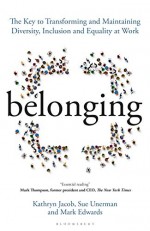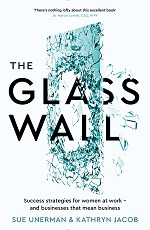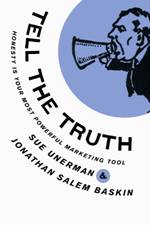Don’t shape shift
- Don’t do everything
JK Rowling has been responsible for a generation of children learning to love literature. In 2013 she was named a national literacy hero by the National Literacy Trust. In her books and her films she defined femininity for a generation of girls who are now grown up.
Her heroine Hermione Grainger is cleverer than the boys. She is also so hard working that she leaps at the magic technology of the Time Turner which allows her to go to two different classes simultaneously. This seems very similar to the trope that working women hear about needing to work twice as hard as any man in order to succeed. As I wrote in The Glass Wall: “existing material tends to advise women that to get on they need to work harder, be more ‘superwoman’…. This is more of what they have been doing. Meanwhile men are getting further and doing less.” Don’t do everything, work smarter not harder.
- Don’t shape shift
“The veela had started to dance, and Harry’s mind had gone completely and blissfully blank. All that mattered in the world was that he kept watching the veela, because if they stopped dancing, terrible things would happen… .
And as the veela danced faster and faster, wild, half-formed thoughts started chasing through Harry’s dazed mind. He wanted to do something very impressive, right now. Jumping from the box into
the stadium seemed a good idea…” Harry Potter and the Goblet of Fire
Another example of femininity in Harry Potter are the Veela. Veela are a race of semi-magical beings who are able to seduce men and boys at will. For those interested they seem to be based on Slavic folklaw. They’re shape-shifters. Capable of charming men with their dance and their beauty, if they get annoyed they can kill with a glance. Whilst they appear to be beautiful if they’re angry they change into harpies, vicious and ugly and terrifying. Shape-shifting is something many women at work often feel obliged to do. They must maintain the appearance of beauty whilst getting everything done.
It takes a huge amount of effort. Effort spent on making sure that they look good and are approved of in every situation at the same time as working hard on the project in hand. Going out of their way to complete tasks perfectly at the same time as looking flawless. Smiling charmingly through whatever stress they’re under. As Kimberley Harrington wrote in her satirical article for the New Yorker:
- “I have two kids andthe unspoken pressure to act like they don’t exist when I’m on a conference call.”
- “I have male colleagues who tell me I’m not aggressive enough and that I will never get what I want out of my team andfemale colleagues who tell me I’m too aggressive and that I make them sad.”
- “I have the confidence to speak my mind, asking hard-hitting questions about the project I’m working on, andthe ability to keep my ears from bleeding when a roomful of male clients explains to me what I don’t understand about the female target audience.”
Is it too much effort to seek perfection and approval in every instance? Of course it is. The bar is set too high, the need for perfection is unrealistic. We need to make it clear to women at work that shape shifting isn’t a requirement.





Here’s how Cannes got serious this year
Friday, June 29th, 2018The best of the work this year curated in the MediaCom suite had business success running right through it. Sure the collection of work had plenty of stunts littering it still, but the cream of work that rose to the top included fabulous strategic thinking.
This is of course true of the winner of the Media Grand Prix, MediaCom and BBH’s work for Tesco Food Love Stories. A campaign that drove sales for Tesco at an unprecedented rate.
There was lots discussion about best practice for the future of our business. The impact of voice on marketing came up in a number of sessions. Whilst it’s a long way from taking over, the role of a voice personal assistant is already changing some consumers lives. There’s lots to learn about what needs to be done, but every brand should begin to think now about whether their memory structures are sufficient for stand out without visuals and where a purchase decision will be based on just a couple of options spoken by Alexa rather than on scanning a shelf full of product.
Serious about meaning.
I watched the full Glass Lion shortlist with my co-curator (and co-author of The Glass Wall, success strategies for women at work and businesses that mean business) Kathryn Jacob OBE. The vast majority of entries this year were about gender equality. As we showed the work to our guests, clients and worldwide colleagues in advance of the jury’s final decision we asked our audience to vote for their winner. They chose an entry from the Miss Peru competition where the finalists subverted the normal recitation of so called “vital statistics” bust ie waist and hip measurements and instead substituted truly vital stats about domestic violence in Peru. Standout and impactful. As was the worthy Grand Prix winner: Blood Normal
Serious about audience insight.
There was plenty to hear about how to reach audiences with real impact. For one audience Viacom have developed some interesting insights about the new marketing imperatives for reaching under 35s. They point out that there’s been a step change in culture which every marketing plan needs to consider. Their point of view on the “Culture of Proximity” dissects the developments and mandates a new approach. As Maya Peterson, Viacom’s director of culture and creative insights, says of her audience: “People are acting like brands and they expect brands to act like people.”
Serious about partnership.
It was clear throughout Cannes week that success isn’t achievable on your own anymore. Even the disrupters are subject to disruption now, and no-one knows the path forward in isolation. Leaders today will share best practice with generosity and make strategic alliances to win. So the news of the alliance between News UK, Guardian News & Media and The Telegraph about The Ozone Project – a jointly-owned audience platform to combat industry-wide digital advertising concerns, including brand safety, data governance and ad fraud is to be welcomed. It mirrors one of the standout Titanium Lion shortlists: The Quality Journalism campaign where UNESCO created an alliance of quality news channels to recommend reading their traditional rivals rather than fighting for market share.
As the future continues to challenge everything at a speed that takes the breath away its important to build teams that can work together to support the growth of brands, business and meaning.
Posted in MediaComment | No Comments »